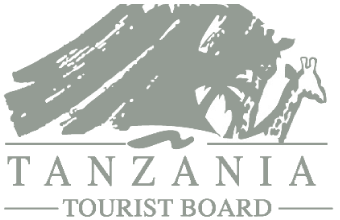
“Can we use a credit card to make purchases while we are in Tanzania on safari?”
Many people are used to using credit cards in their day to day lives for the sake of convenience, so it’s understandable that many people want to continue using their credit cards while in Africa.
Credit cards can be a useful tool, and personally I do always travel with one for emergencies and other special circumstances. However, we encourage guests to try and avoid using credit cards for small purchases while on safari, even at the lodges and recommended shops. It’s not a matter of the shop or lodge’s reputation, it’s a matter of computer security in general in Africa. (Just an aside, many of the lodges and camps ‘in the bush’ are unable to take credit cards anyway).
The reason why we are giving this advice is because incidents have happened in the past where guests’ credit card numbers were being used for other purchases in Africa after they got home. That being said, the incidents have been few and far between, just a handful of guests had a problem out of literally hundreds that had no problem. But it’s good to be aware, at the very least. If you end up using your credit card, just keep an eye on your statement when you get home.
If you purchase a more expensive souvenir such as tanzanite, or a life-size giraffe wood carving from the Cultural Heritage shop for several thousand dollars, well, in this case you might need to use your credit card. The message here is to try to use discretion. It’s a good idea to travel with enough cash to cover gratuities, small souvenirs, drinks and laundry service as applicable (regular US currency is fine). Some lodges and camps do provide complimentary beverages and laundry service in their rates, while others charge a nominal fee for these items. You can find a list of such inclusions and exclusions here:
http://www.africadreamsafaris.com/pdf/ADS_LaundryBeverageList.pdf

*******************************************************
Another couple of “frequently asked questions” include:
“Why isn’t wine and other beverages included in the price for all lodges? How much should I expect to pay?”
All the lodges and camps are individually owned and operated, and we have little control over whether or not beverages are included in their rates. Nobody likes hidden costs so we try hard to make it very clear upfront exactly what is included and excluded in each safari itinerary (see last page of your written safari itinerary, or simply check the list at the link mentioned above). Wine can typically be purchased from the various lodge restaurants or bar by the glass or by the bottle. Wine prices span a considerable range; premium wines are usually available as well as less expensive varieties and house wine. I recall purchasing wine myself for around $7-$12 USD per glass (can’t remember exactly what kind). It seems most of the South African wines offered run between $30 – $60 USD per bottle. Other types of alcoholic beverages are available for purchase, including premium liqueurs, and you can basically expect to pay approximately the same as what you’d pay for the same type/brand at a typical bar or restaurant here in the US. Bottled water and soft drinks ordered from the bar are typically just a few dollars each.

*******************************************************
“How much can I expect to pay for laundry service?”
Laundry service is available at almost all the lodges and camps. If laundry service isn’t already included in the lodge rates (per the sane list at the link mentioned above), you can expect the costs to run typically around $2-$3 per item. An example of one “item” would be one jacket, or one pair of pants, or one pair of socks, etc. I recommend giving your laundry to the lodge as early as possible during your stay. Since most of the laundry here is done by hand and air dried in the sun, you want to give them a fair shot at getting your items cleaned and dried prior to your departure from that lodge.












































